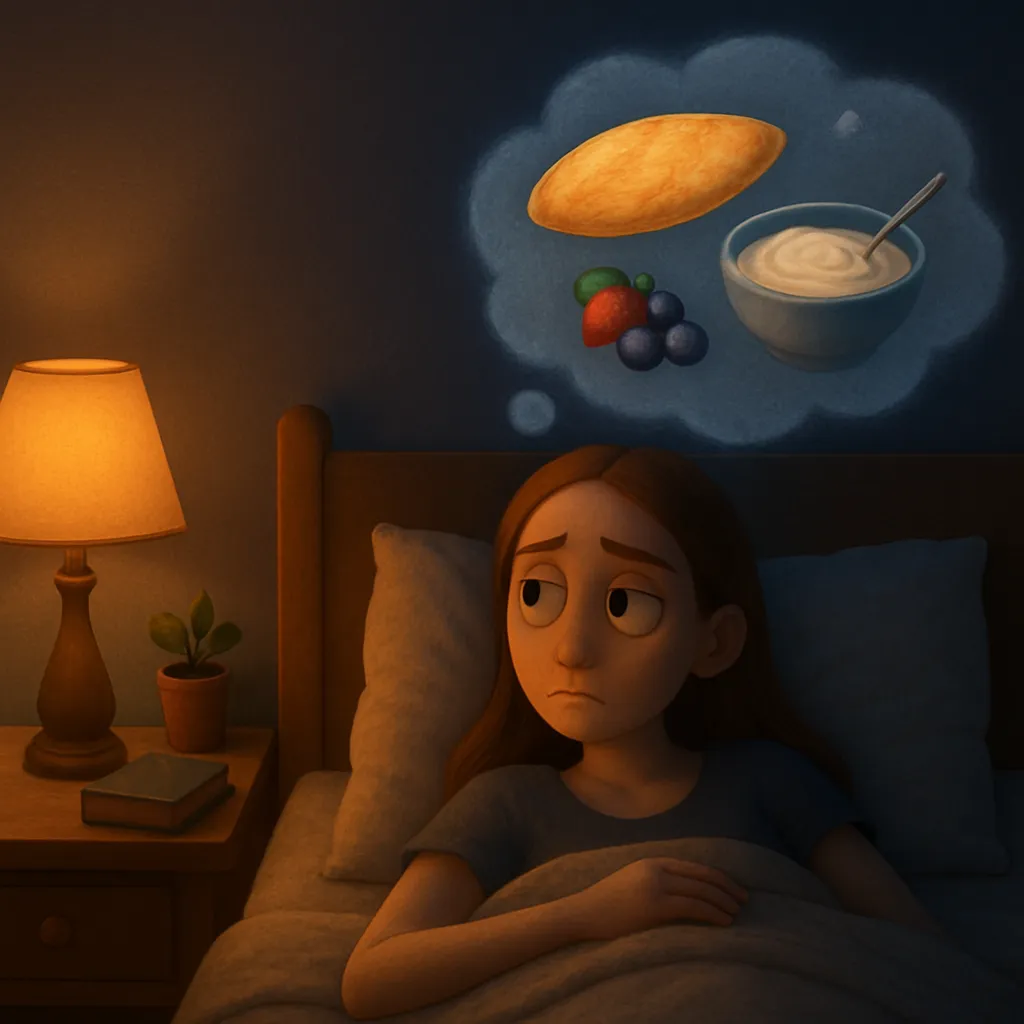What is an Eating Disorder?
Eating disorders are a range of psychological and physical conditions that influence an individual’s relationship towards eating behaviours. These conditions lead to unhealthy eating habits that, later on, might cause additional health concerns. If left untreated, these conditions may become life-threatening. There are different eating disorders, each with unique symptoms and health concerns requiring bespoke treatment plans.
Therefore, it’s crucial first to understand how eating disorders happen, their symptoms, and how you can help yourself or a loved one experiencing the condition. The constant preoccupation with food and body image can become all-consuming, leading to anxiety, depression, and a general decline in the quality of one’s life.
However, recovery is possible. With the right tailored treatment plan, support, compassion, and perseverance, individuals can overcome eating disorders and maintain healthy relationships towards eating.
Eating Disorder Symptoms
An eating disorder can manifest itself in various ways. It’s crucial to remember that different types of eating disorders have different symptoms. Additionally, because of the complex manifestation of these conditions, it can be challenging to determine whether an individual is experiencing an eating disorder. However, there is a list of common psychological and physical symptoms involving eating disorders.
Some of the psychological signs and symptoms might include:
- Patterns of behaviours that lead to extreme weight loss
- Visible discomfort when being around food
- Obsessive thoughts over food, eating, dieting, and calories
- Obsessive and distorted thoughts relating to body image
- Behaviours of binge eating
- Frequent mood swings
- Behaviours of avoiding meals or eating small portions of food
- Withdrawing from social interactions, especially when food is involved
- Intense fear of gaining weight
- Refusal to consume a specific category of food (most commonly carbohydrates)
- Challenges with concentration

Some of the physical signs and symptoms might include:
- Frequent change in weight, both up and down
- Challenges with sleeping
- Frequent menstrual irregularities
- Gastrointestinal health concerns (acid reflux, cramps, constipation)
- Muscle pain or weakness
- Frequently feeling cold
- Challenges relating to fainting, dizziness, or lightheadedness
- Challenges with immune functioning
- Signs of brittle hair and nails
- Signs of low blood pressure
- Challenges with wound recovery
- Visible growth of hair all over the body (lanugo)
It’s essential to mention that not all individuals with eating disorders will experience all of the symptoms listed above. Similarly, if an individual is experiencing some of these symptoms, it doesn’t mean they’re experiencing an eating disorder.
Getting diagnosed by a medical professional is crucial, and self-diagnosis can lead to other health concerns.
Types of Eating Disorders
When discussing this topic, it’s essential to understand that many related conditions fall under the eating disorder umbrella. Each type of eating disorder has unique symptoms and should be treated appropriately. Therefore, to better understand each condition, we’re overviewing the six most common types of eating disorders.
Anorexia Nervosa
Individuals experiencing this eating disorder tend to view themselves as overweight or generally have a distorted body image. This eating disorder usually develops during adolescence or young adulthood.
Anorexia nervosa can be divided into two subcategories: restrictive or binge eating and purging type.
The restrictive type is linked to behaviours of weight loss through excessive dieting, fasting or exercising. On the other hand, the binge eating and purging type is linked to behaviours of eating large amounts of food followed by purposeful vomiting, laxatives intake, or excessive exercise.
Common symptoms of anorexia nervosa include:
- Distorted body image
- Obsessive thoughts over body weight loss
- A constant fear of gaining weight, despite being underweight
- Restricted eating habits
Anorexia nervosa can lead to serious health concerns, including:
- Thinning of bones
- Dramatic weight loss
- Brittle hair or nails
- Damaged skin
- Challenges with the gastrointestinal system
- Infertility
In severe cases, anorexia nervosa can lead to life-threatening consequences.
Bulimia Nervosa
Bulimia nervosa also usually develops during adolescence or young adulthood. Individuals experiencing this type of eating disorder tend to eat large amounts of food and usually cannot control themselves while they consume. These patterns of behaviour are commonly referred to as binge eating. Individuals tend to binge on the types of food they usually avoid.
However, after binge eating, individuals tend to take up purging behaviours such as vomiting, dieting, fasting, laxatives, enemas, and excessive exercise.
Common symptoms of bulimia nervosa include:
- Recurring behaviours of binge eating
- Lack of control while eating
- Recurring purging behaviours
- Intense fear of gaining weight
- Obsessive thoughts over body shape and weight
Bulimia nervosa can lead to some additional health consequences, including:
- Inflamed throat
- Swollen salivary glands
- Recurrent acid reflux
- Irritated gut and gastrointestinal challenges
- Severe dehydration
- Challenges with hormonal disbalance
If left untreated, bulimia nervosa can lead to serious health concerns such as a heart attack or stroke.
Binge Eating Disorder
This eating disorder develops during adolescence; however, individuals can start experiencing it at any age.
Binge eating disorder is similar to bulimia nervosa or the binge eating subtype of anorexia nervosa. Common signs include binge eating with a lack of control during food consumption. However, individuals do not partake in purging activities such as vomiting or excessive exercise.
Some of the more common symptoms of binge eating disorder include:
- Consuming large amounts of food despite not being hungry
- Challenges with control during food consumption
- Feelings of shame and guilt after binge eating
- Avoiding purging behaviours
Individuals who experience this eating disorder have an increased risk of developing cardiovascular diseases, diabetes or other similar health concerns.
Avoidant Restrictive Food Intake
Individuals with avoidant restrictive food intake have challenges eating because they either don’t feel like eating or have issues with specific smells, tastes, textures, colours or food temperatures.
Common symptoms of avoidant restrictive food intake include:
- Avoiding food consumption that prevents individuals from getting the average calorie intake
- Avoiding social situations that involve eating food
- Nutrient deficiencies
- Weigh loss or challenges with development
It’s crucial to understand the difference between eating disorders and picky eating. Restrictive food intake disorder is an eating disorder often confused with other behaviours children often outgrow. However, this eating disorder requires proper medical treatment.
Rumination Disorder
Rumination is a recently recognised type of eating disorder. With rumination disorder, individuals tend to regurgitate undigested food, rechew it, swallow it, or throw it away. This typically happens within 30 minutes after an individual eats a meal.
Common symptoms of rumination disorder include:
- Restricting food
- Avoiding eating in public
- Abdominal pain and nausea
- Dental problems
This eating disorder might be mistaken for vomiting or other digestive concerns. However, rumination disorder is a type of eating disorder. Rumination disorder can lead to severe malnutrition and can be fatal.
Pica
Individuals who experience pica tend to develop eating habits for non-food substances. Pica is common in children, adolescents and adults.
Examples of non-food items include:
- Ice
- Dirt
- Cotton
- Paper
- Hair
- Soap
- Cloths
Individuals with this eating disorder risk getting poisoned from the substances they consume. Additionally, because of their eating habits, they don’t consume enough food with nutritional value, hence increasing their risk of malnutrition.
Treatment of Eating Disorders
There are multiple treatment options for eating disorders. We’re going over a few options depending on the severity of the condition and the needs of the individuals.
Home Care
Individuals with eating disorders often require additional support and care to overcome the condition. Home care from a professional caregiver can provide the monitoring, meal planning, accountability, and emotional support that individuals with eating disorders require.

It’s important to note that home care isn’t a substitute for therapy and serves as additional support to regular treatment.
Psychotherapy
By addressing the underlying emotional and psychological challenges with a professional, individuals can overcome an eating disorder. Psychotherapy can help with the following:
- Identifying the triggers that cause eating disorder behaviours
- Help build self-esteem and a better body image
- Develop coping strategies to overcome eating habits
- Overcoming intense fear related to eating behaviours
Nutritional counselling
These treatment plans address the relationship between the individual, their eating patterns and body image. Nutritional counselling can be a highly effective and collaborative approach to treating people with eating disorders.
Medications
There are no medications that can treat eating disorders. However, in some cases, professionals will prescribe individuals with specific meds, such as antidepressants, to help them overcome the condition. Psychotherapy is still required.
Support Groups
Many individuals have overcome their challenges with eating disorders by recognising their patterns, thanks to other people going through the same thing. Additionally, a supportive environment can build accountability and raise awareness, which can also help treat certain eating disorders.
Minimising Treatment Rejection
One of the most concerning aspects of eating disorders is that individuals often don’t want to overcome it because it gives them a sense of control. Treatment rejection for eating disorders is a huge challenge that is present worldwide.
It’s essential to understand that for many individuals, their eating disorders are a coping mechanism for other underlying challenges. Therefore, the fear of losing that sense of control, even though it’s harmful to them, tends to be stronger than the will to overcome the condition.
Hence, treating each individual differently, based on their needs, is paramount.
Humanised treatment plans are a crucial part of minimising treatment rejection. This requires a significant amount of compassion, empathy, and patience.
Who is at Risk?
Eating disorders don’t discriminate against gender, age, race or cultural and social background. They are mental health conditions that can affect anyone. Additionally, biological, psychological, and social factors should be considered when discussing the condition.
Eating Disorders in Men
Eating behaviours such as purging, fasting, food avoidance, and binge eating are common among men. These conditions tend to centre around women; however, research shows that 1 in 3 men experience an eating disorder.
However, due to stigma, shame, and guilt, men tend to overlook the symptoms and deny seeking help. There is no shame in having and overcoming an eating disorder; proactive support can help men overcome their mental health condition.
Eating Disorders in Women
Eating disorders are more common in women and young girls than in men. Sometimes, women and girls feel like they must reach a certain standard regarding body image and weight loss, which is also one of the many reasons they develop these conditions.
Anorexia nervosa, binge eating disorder, restrictive food intake disorder, or any other eating disorder can be diagnosed at any age.
Eating Disorders in Teens
When individuals go through puberty, or the phase from childhood to teenage years, they tend to develop a distorted image of their bodies. These habits and the intense fear of gaining weight lead to unhealthy eating patterns and mental health concerns.
Many teenagers successfully hide their symptoms from their families or caregivers, which prolongs their treatment and raises other health concerns.

Are Eating Disorders Genetic?
Research shows that while eating disorders are not genetic, other genetic influences may lead to eating disorders.
One example of this is anorexia nervosa. Individuals with anorexia nervosa might have genetic factors such as:
- Cholesterol production
- Body weight index
- Fasting insulin and fasting glucose
These genetic factors might later on trigger specific behaviours that ultimately lead to the eating disorder.
Stigmatisation Towards Individuals with Eating Disorders
Many people still don’t fully understand eating disorders and often see them as a choice and not a mental health condition. Hence, those living with eating disorders deal with judgement and stigma from those around them. This directly impacts these individuals not asking for help or seeking treatment when needed.
Therefore, it’s crucial to get educated on anorexia, bulimia, restrictive food intake disorder, binge eating disorder, or any other similar condition. This way, we can all play a vital role in breaking down the stigmatisation of eating disorders and making the treatment process easier for those who require it.
Eating Disorder and Substance Abuse
Eating disorders such as anorexia nervosa, bulimia nervosa, and binge eating disorder can coexist with substance abuse.
Substance abuse can be a coping mechanism for individuals with eating disorders. These substances can help them cope with difficult emotions, numb feelings related to mental health, and suppress their appetite. On the other hand, individuals who have challenges with substance abuse might, later on, develop an eating disorder.
In any case, the relationship between eating disorders and substance abuse is complex. Hence, it requires treatment that will cover the physical and psychological needs of the individuals.
Social Media and Eating Disorders
Many eating disorders are linked to dissatisfaction with their body shape, low self-esteem, and a constant fixation on low body weight. Social media platforms are known to promote “ideal body images”, which are usually unrealistic, edited or are a result of unhealthy eating habits.
Many studies today prove that social media platforms are associated with risks linked to eating disorders. The same studies show that around 52% of young girls and 45% of young boys show behaviours of skipping meals while participating in excessive exercise influenced by social media.
How to Overcome Eating Disorders
Each individual experiencing any eating disorder requires a bespoke treatment plan. For some, it might take them a short amount of time to overcome the conditions, while for others, it might be more challenging and take years.
Whatever the case, it’s essential for individuals to get a plan that best fits their needs. Additionally, getting support from experienced healthcare workers that can provide the accountability and assistance needed to overcome the eating disorder is helpful.
Importance of Body Positivity
Body positivity promotes self-acceptance and challenges the social beauty standards that are commonly present on social media. As a form of movement, body positivity helps people embrace their bodies and strive towards a healthy lifestyle.
This movement is a crucial part of lowering the percentage of individuals who have one or more forms of an eating disorder. Therefore, it’s essential to promote body positivity and eliminate the harmful beauty standards that pose a threat to men and women worldwide.
Support for People with Eating Disorders
Our caring clinicians put the people we serve first, respecting the pace of their recovery, needs, and requirements.
At Unique Community Services, we believe that creating a safe and comfortable environment is paramount to the treatment progress of any eating disorder.
What makes us different is the humanised care and compassionate approach to understanding your challenges and spending extra time addressing them individually and through collaboration with our committed teams of clinicians.
We can provide the accountability, support, and compassion you or your loved one deserve during the challenging times that come with eating disorder treatments.
To learn better how we can help, make sure to learn more about our service.

